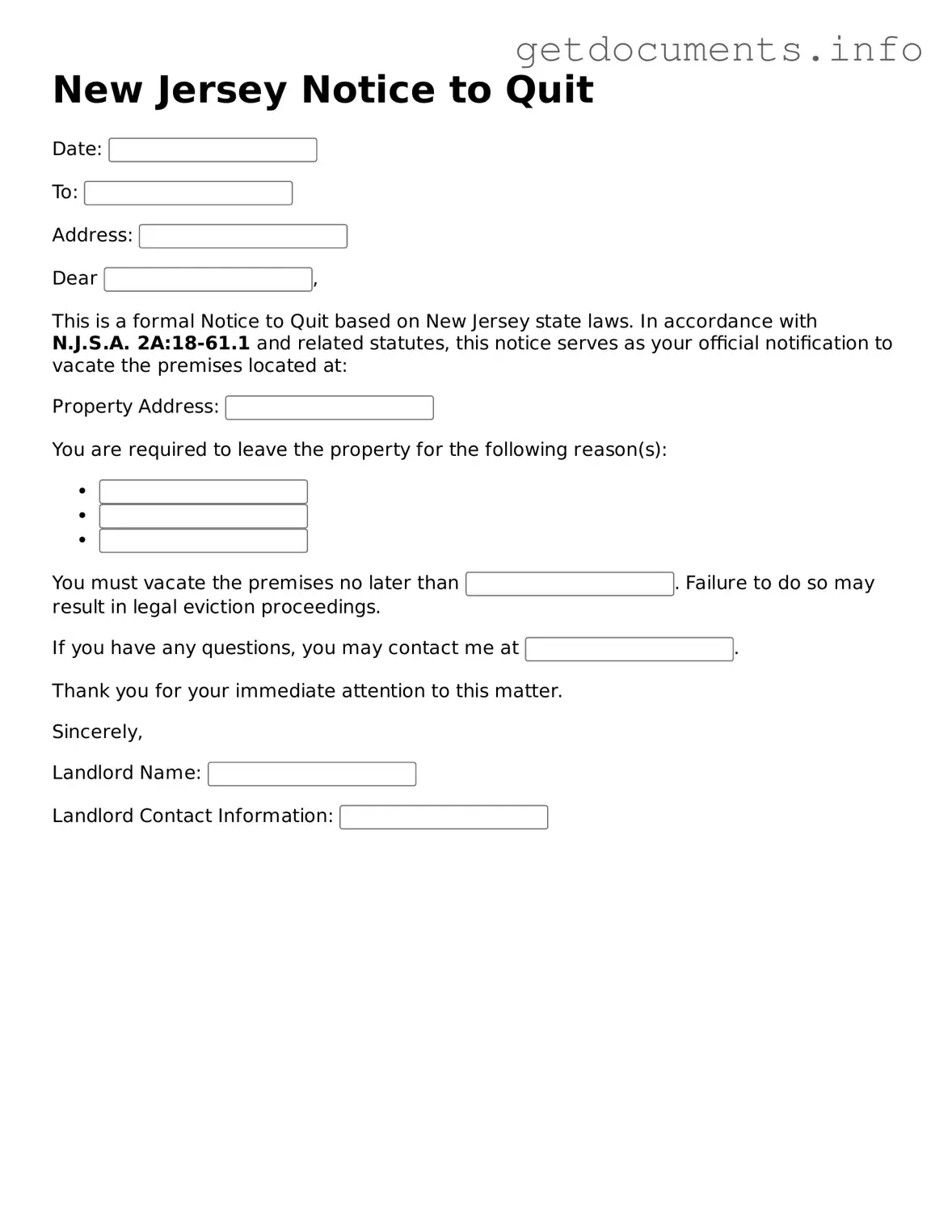Free Notice to Quit Template for New Jersey
The New Jersey Notice to Quit form is a legal document used by landlords to formally notify tenants of their intention to terminate a lease agreement. This notice is a crucial step in the eviction process, ensuring that tenants are aware of the need to vacate the premises. Understanding this form and its implications is essential for both landlords and tenants to protect their rights and responsibilities.
Ready to take the next step? Fill out the form by clicking the button below.
Access Notice to Quit Editor
